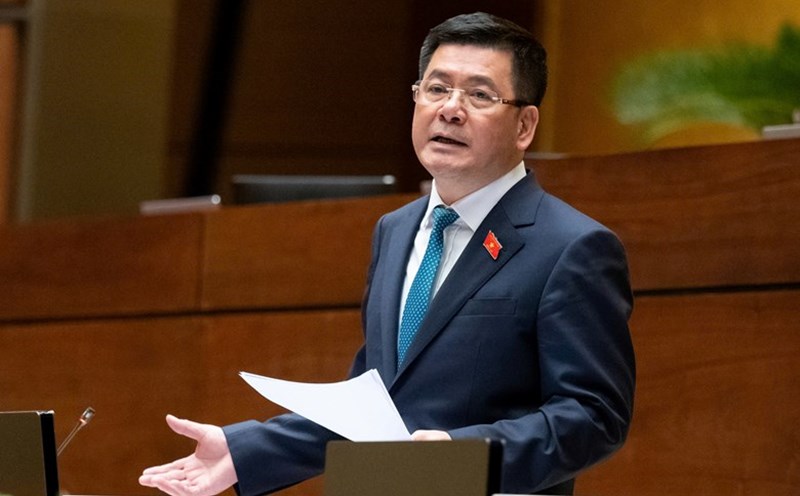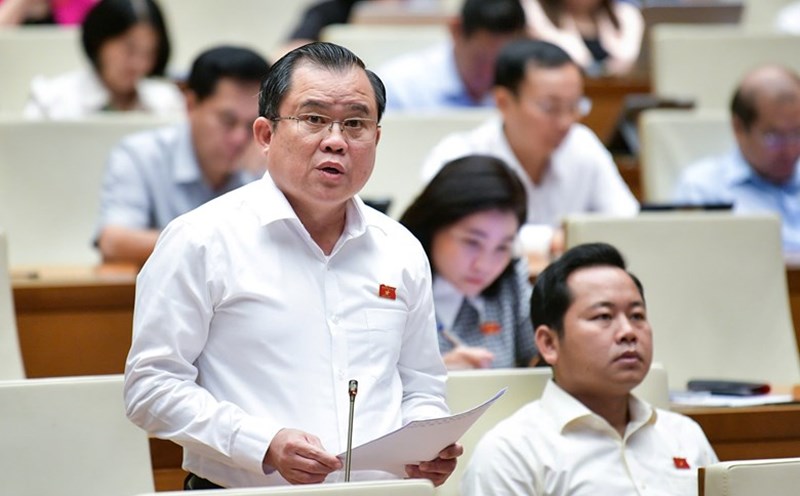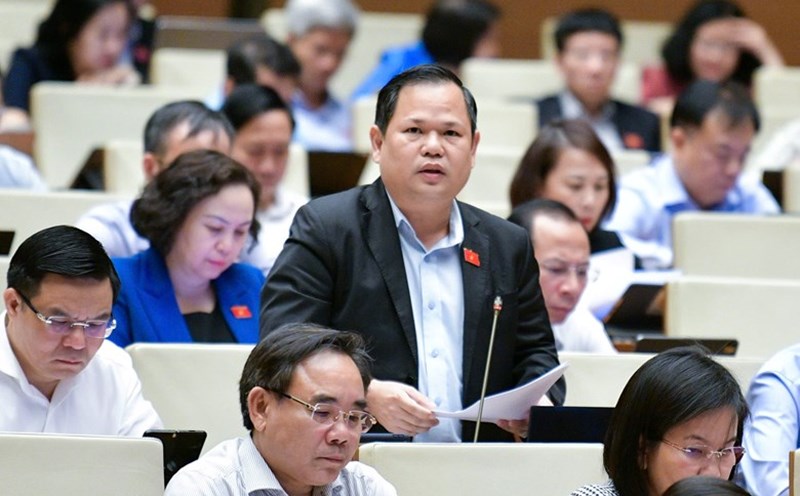Let businesses negotiate electricity prices themselves
Commenting on the issue of electricity monopoly, delegate Nguyen Duy Thanh (Ca Mau Delegation) said that the draft stipulates that the State has a monopoly on operating the transmission grid, except for the grid invested and built by non-state economic sectors. Such a provision would contradict Clause 5, Article 5 of the draft law on eliminating all monopolies and unreasonable barriers, and implementing maximum socialization in investment and exploitation of the national electricity transmission system.
According to the delegate, currently about 95% of the national power grid is invested by the state, so it is difficult to implement socialization as the draft law aims for. From there, the delegate proposed to amend it to be reasonable.
According to the delegate, there is currently a power shortage but EVN is still cutting the power output of small-scale rooftop solar power projects that have signed 20-year contracts with investors. Meanwhile, EVN's increase in electricity prices is not in line with the Party and State's policy on incentives according to Decision 13/2020/QD-TTg of the Prime Minister.
Regarding the issue of decentralization and delegation of power, the delegate suggested that the Central Government only plan power projects. "The appraisal and approval of projects should be assigned to localities to implement according to the standards and regulations of the power industry. Only then will it be in line with the General Secretary's direction on institutional breakthroughs and reduction of administrative procedures," said delegate Duy Thanh.
This delegate cited Clause 3, Article 19 of the draft law, which stipulates that all hydropower projects must be appraised by the Ministry of Industry and Trade, which is not in line with the Party and State's policies. In particular, the draft law has many provisions that demonstrate the monopoly of the electricity sector. While the demand for electricity is increasing, the draft law tightens control over electricity sources, such as requiring many licenses, which will push up electricity prices, affecting energy security.
Regarding electricity export, the delegate said that the draft stipulates that the electricity export price is set by the power unit. According to the delegate, the draft regulation is not suitable because the investment is by the enterprise, so the electricity selling price must be decided by the enterprise after fulfilling its obligation to pay the state budget.
"Currently, partners from Singapore are raising the issue of buying and selling electricity, pulling the power grid from Ca Mau - Singapore without going through the national grid" - delegate Nguyen Duy Thanh said and suggested that the money invested by enterprises should be allowed to negotiate the selling price with foreign partners without involving EVN.
Encouraging investment in electricity in rural areas, border and islands
Also at the meeting, delegate Hoang Duc Chinh (Hoa Binh Delegation) said that providing electricity to ethnic minority and mountainous areas is one of the important tasks to narrow the development gap, improve living standards and promote socio-economic development in disadvantaged areas.
However, according to delegates, these are areas with difficult and complex terrain, high investment costs while the economic efficiency is low due to low electricity consumption and difficult grid maintenance.
Delegates proposed to study and supplement policies to encourage economic sectors to invest in electricity projects in rural areas, mountainous ethnic minority areas, border islands and areas with particularly difficult socio-economic conditions. In particular, the State needs to have a support mechanism for solar power, wind power, tidal power, biomass power and small hydropower projects.
Along with that, supplement regulations on preferential electricity purchase prices for electricity projects in rural, mountainous and island areas to encourage investors and businesses to participate...
Delegate Nguyen Huu Thong (Binh Thuan Delegation) proposed that the Government have a policy to allow people to install rooftop solar power connected to and transmit excess capacity to the grid on islands with independent power systems, not connected to the national power system, which will be purchased at the ceiling price of solar power plants according to the decision of the Ministry of Industry and Trade. The delegate said that this way, the islands will have enough electricity to use and save a lot of state resources because they do not have to compensate for losses or not bring grid power to the island.











